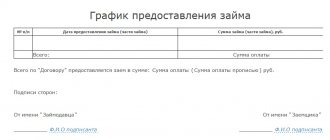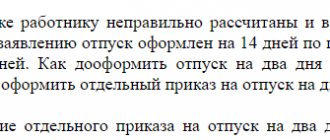What are tax benefits?
The system of discounts provided by government authorities for certain individuals and legal entities is called preferential taxation.
The main goal is to stimulate the development of entrepreneurship or provide support for citizens in need.
The provision is regulated by the Tax Code of the Russian Federation and is an integral part of the economic and social policy of the state.
A variety of preferential benefits are issued for large businessmen or private individuals and provide a range of benefits regarding taxation.
Social assistance is not provided to individual citizens, but is intended for certain groups of people distributed by legislative documents.
Results
Enterprises engaged in socially significant (providing educational, social and medical services) and agricultural sectors have the right to take advantage of tax benefits. In particular, they are given the opportunity to switch to a zero rate for paying income tax by submitting an application before the start of the tax period.
In order to take advantage of the right to receive tax preferences, as well as retain it in the future, such organizations need to take care of fulfilling a number of conditions (regarding the number of personnel, obtaining licenses/certificates, ensuring sufficient turnover from preferential activities).
The Tax Code of the Russian Federation also provides preferences for participants in special, free, and other economic zones and regional investment projects. They are given a benefit in the form of a 0% rate for paying taxes to the federal budget. In addition, a number of residents may be provided with benefits for paying taxes to the budget of the constituent entities of the Federation.
You can find more complete information on the topic in ConsultantPlus. Free trial access to the system for 2 days.
Forms and types of tax benefits
Tax benefits are provided in the following form:
- Tax exemption from payment of certain types of taxes for life;
- Withdrawal - one of the objects subject to tax levies is not subject to taxation rules. While everything else is affected in the standard form;
- Tax relief – a reduction in the tax rate is provided. In most cases, it applies to legal entities rather than individuals;
- Deferment of payment is the provision of opportunities to pay the tax rate at a later date than usual. All deadlines for deferment of taxation are maintained by the Tax Code of the Russian Federation;
- Tax relief is a representation for those who are late in paying taxes without legal grounds. In this case, you can make payment without penalties or interest.
All of the above types of preferential taxation can only be implemented if a citizen:
- Falls under the category of the population who has preferential taxation;
- Receives profit, which may not be considered taxable;
- Has a property that is not subject to taxes under special circumstances;
- Spends material resources for the intended purposes, from which the tax is reimbursed to him.
In addition, the preferential benefits provided are:
- State – benefits for federal taxes;
- Regional – discounts on regional taxes;
- Local – preferential programs for local tax rates.
Reducing the payment of taxes established by higher authorities cannot be carried out by authorities that are lower in rank.
As an example, the federal tax rate cannot be lowered by regional or local authorities.
The table below presents characteristics of special tax regimes.
| Tax system | Fees payable (excluding mandatory contributions to public funds outside the budget) | Object of taxation | Collection rate |
| UTII (Unified tax on temporary income) | Personal income tax withheld from employee salaries | Employee salaries | Thirteen percent for citizens of the Russian Federation and thirty percent for foreigners |
| Single tax paid due to the use of the UNDV system | The amount of income fixed by law for certain types of activities | Fifteen percent | |
| Unified Agricultural Tax (Unified Agricultural Tax) | Personal income tax, which is withheld from employee salaries | Employee salaries | Thirteen percent for citizens of the Russian Federation and thirty percent for foreigners |
| Single tax paid due to the use of the Unified Agricultural Tax system | Profit reduced by expenses | Six percent | |
| STS (Simplified Taxation System) | Personal income tax, which is withheld from employee salaries | Employee salaries | Thirteen percent for citizens of the Russian Federation and thirty percent for foreigners |
| Single tax paid due to the use of the simplified tax system | Profit | Six percent | |
| Profit reduced by expenses | Fifteen percent | ||
| Patent (the amount of profit established by law from a certain type of activity) | Six percent | ||
| PSN (Patent taxation system) | Patent payment | Potential profit from the activity for which a patent is issued | Six percent |
Benefits for IT enterprises from 2021
Starting from 2021, the authorities decided to support enterprises and individual entrepreneurs in the IT industry, as well as stimulate their development. Therefore, preferential rates have been established for them:
- 3% - to the federal budget;
- 0% goes to the regional budget.
The conditions for applying reduced rates are not complicated:
- The enterprise or individual entrepreneur is included in a special register and has received a document on state accreditation.
- The average number of employees is at least 7 people.
- The share of income from operations in the IT sector at the end of the reporting or tax period is at least 90% of the amount of all income.
Benefits for businesses in the IT industry are provided not only for income tax, but also for other taxes and fees. Find out more about them from the Review material from ConsultantPlus. To do this, you just need to sign up for a trial demo access to the K+ legal reference system. It's free.
What tax benefits are there?
Absolutely all tax benefits provided to individuals are recorded in the Tax Code of the Russian Federation. It determines the rules for issuing, types and sizes of discounts on tax rates.
For property
The Tax Code of the Russian Federation determines the tax levy on any type of property of an individual. In addition, the Code also specifies criteria under which property is not subject to taxes.
The classification of main income for property is given below:
- Taxation of living space and other premises. According to the law, every premises that belongs to an individual is subject to taxation. For certain categories of citizens, partial or complete exemption from payment of taxes may be provided;
- Collection of tax from vehicles. It is established and regulated by local authorities, but state laws set a limit that cannot be exceeded. A partial or full right to exemption from paying this tax may be granted to certain categories of citizens, or if the car meets the characteristics specified in the draft laws;
- Land taxes. Apply to absolutely all land plots owned by an individual. Release can be made if citizens meet certain criteria.
The provision of the above-mentioned preferential benefits can occur either for a certain period or on an ongoing basis.
Each case is considered individually by authorized bodies.
Tax deductions
This type of preferential benefit allows you to avoid paying taxes on funds paid for purposes specified in the legislation. Such a tax benefit can only be established upon payment of funds.
That is, an individual pays for personal needs that fall under this group. After this, you are required to provide a document confirming the expenses to the Tax Service of the Russian Federation.
Employees of the institution check the authenticity and, if the answer is positive, reimburse part of the money required by law.
There are the following types of tax deductions:
- Social – intended for partial return of funds spent on training, treatment, insurance or pension contributions, as well as donations. All of these deductions have one specific amount;
- Standard - determined for absolutely all categories of citizens of the Russian Federation who receive taxable income and have a child. Tax deductions are made monthly, in an amount depending on the status of the child (healthy or disabled child) and parent (single parent, large family);
- Property - used when purchasing living space, as well as when selling real estate or vehicles. When purchasing a home, the tax payer is entitled to a partial refund of the tax paid on the amount paid for the living space. When selling, he is not subject to tax on the profit received. Payments are expected only if a number of certain conditions are met.
Tax benefits can only be established upon payment of funds
Tax deduction for IIS
Since 2015, such an investment method as an individual investment account (IIA) has appeared in Russia.
This is a private investment account that provides tax breaks for citizens. It is for this reason that individual investment accounts may be of interest to citizens who have free savings.
An individual investment account is a special account that is opened by a private investor or with a management company. Unlike a brokerage account, IIS has some distinctive features:
- The replenishment amount per year is up to 1 million rubles.
- Investing only in Russian securities is allowed.
- An account can only be opened by an individual citizen of the Russian Federation.
- An investor can have no more than one account.
- The account can only be in rubles.
- To receive tax deductions, an account is opened for a period of no more than 3 years. Deductions can be made annually.
- If the investor closes the account before three years have passed, then he will have to return all amounts returned from the budget to the budget. In addition to the deduction amount, penalties will be charged on it, which also have to be returned.
Types of tax deductions for IIS and maximum amount
Individual investment accounts provide two types of deductions:
- Type A deduction (for contributions to IIS) allows citizens to annually return previously paid personal income tax. The amount of deduction is limited to 13% of the amount deposited into the IIS for the calendar year. Tax refund of personal income tax is allowed for investments of no more than 400 thousand rubles, that is, even if an investor deposits 600 thousand rubles into the account, he will be able to issue a deduction only for 400 thousand rubles. The maximum return amount is 52 thousand rubles. Tax can be returned only in the amount in which it was paid to the budget (for example, a taxpayer paid 20 thousand rubles for the year in the form of personal income tax - this is the amount that will be returned to him, even if he could count on receiving 52 thousand rubles . deduction).
- Type B deduction (for income received from IIS). It allows citizens not to transfer profits from transactions to IIS. This rule does not apply to dividends: personal income tax will have to be withheld from them in any case. This type of deduction can be applied when closing an individual investment account, provided that other options for obtaining a deduction are not used. The amount of profit that is not subject to personal income tax under type “B” is 390 thousand rubles. annually. For three years of holding the account, the investor will receive a deduction in the amount of 1 million 170 thousand rubles.
The investor chooses the type of deduction at his own discretion, but he has the right to use only one type of deduction.
Which type to choose: “A” or “B”
If the taxpayer has a white salary and did not apply a social deduction to return personal income tax, then option A is more profitable for him. Only citizens who have taxable income at the personal income tax rate of 13% can apply for a deduction under type A. Such income can include, for example, salary, rent from renting out an apartment, payment under a civil contract, gifts from legal entities in the amount of over 4 thousand rubles, entrepreneurial profit of individual entrepreneurs on OSNO. Investment income is also taxable. But not any income is suitable, but only profit in the form of the difference from the purchase and sale of shares, purchase and redemption of bonds. Whereas dividend income is not taken into account.
Most people use this particular method of filing a deduction, since it is guaranteed to give them the right to receive 52 thousand rubles. annually, and to receive such a deduction under the second option, the yield must often exceed 40%, which is an unrealistic figure in the current economic conditions.
But there are several other conditions when the “B” type deduction becomes more profitable.
Option B is more profitable if the personal income tax on income exceeds the personal income tax on contributions . This situation may arise:
- with very high profitability from transactions with securities;
- when depositing an amount of more than 400 thousand rubles into the account;
- with investments significantly longer than 3 years (for example, 10 years);
- if it is impossible to obtain a deduction for the entire amount of funds transferred to the IIS.
As for the last reason for choosing option “B”, it is worth understanding that the taxpayer cannot apply for an amount in excess of the limit of 52 thousand rubles in the form of a deduction for contributions, property or social deductions in one year.
Thus, to choose the type of deduction, the taxpayer should calculate the benefits of each option.
Registration procedure and required documents
To return 13% of the deposited amount to the investment account (no more than 400 thousand rubles) to the Federal Tax Service, you must provide the established set of documents , which includes:
- declaration in form 3-NDFL;
- statement;
- a certificate in form 2-NDFL or other documents confirming income subject to personal income tax;
- documents that serve as confirmation of the opening of an individual investment account: an agreement for opening an individual investment account, an agreement on brokerage services, a trust management agreement, or an application to join the regulations for brokerage services, trust management;
- a certificate from the organization in which the account is opened about the amount credited to the account and payment documents: payment credit for a bank transfer or a cash receipt order (CRO) when depositing money in cash, an order to credit money to a broker when transferring from another account.
Based on the results of the audit, the tax office makes a decision on the return of personal income tax within 4 months after registration of the application from the taxpayer.
Type “A” deduction in the amount of up to 52 thousand rubles. the taxpayer is entitled to receive annually.
Type “B” deduction is obtained only based on the results of closing an IIS. In this case, the investor provides the management company with a certificate from the Federal Tax Service indicating that he has not received a personal income tax deduction for the entire period of existence of the investment account. When paying account returns, the management or brokerage company will not withhold income taxes.
Right to tax benefits
Such social benefits apply only to certain categories of citizens, and can also be issued with a special status of the object of taxation.
The current tax system establishes benefits for the following categories of individuals:
- Citizens of retirement age receiving pension payments;
- Active military personnel and military retirees;
- Families with large status;
- Heroes of the Russian Federation, or the Soviet Union;
- People with disabilities;
- Labor veterans;
- Those who took part in military operations;
- Liquidators of the consequences of nuclear disasters (Chernobyl Nuclear Power Plant,);
- Widows or widowers of citizens who died while performing military duty, etc.
This list is approved at the state level and is valid regardless of the county of residence. At the regional level, the list of beneficiaries may expand, depending on the decisions of local authorities.
As for the special statuses of taxable objects, these include:
- Living space purchased with a mortgage. Fees are not imposed on all mortgage loan amounts up to three million rubles. If the cost of housing exceeds the mentioned one, the fee falls exclusively on the amount that is above the norm;
- A preferential offer is issued for any living space and their shares, only if the citizen who acquired them did not receive such compensation after two thousand and thirteen and did not exceed the amount of two million rubles;
- In some regions, motor vehicles with a certain amount of horsepower are exempt from tax, and the profit tax on the sale of a car is also removed if it meets the following criteria:
- Cost no more than two hundred and fifty thousand rubles;
- The car was owned by the citizen for at least three years;
- The sale amount is less than or equal to the amount of money that this car cost when purchased.
At the regional level, the list of beneficiaries may expand, depending on the decisions of local authorities.
Responsibility for violation of norms
If during the tax period circumstances arise that lead to the loss of the right to a benefit, the taxpayer must independently calculate the due tax and penalties and pay them before submitting an updated return. Moreover, the tax rate for the entire reporting period will be 20%.
For information on the rules for submitting clarifications, see the article “Updated declaration: what does an accountant need to know?” .
After the transition to a general income tax rate (20%), educational and medical institutions will not be able to take advantage of the benefit in the form of a zero tax rate for the next 5 years (clause 8 of Article 284.1 of the Tax Code of the Russian Federation).
How are preferential benefits distributed?
Different categories of citizens are entitled to different tax benefits.
For veterans
At the state level, for Heroes of the Russian Federation and the USSR, combat veterans, and World War II, there are the following preferential tax rates at the federal level:
- Exemption from property tax;
- Standard deduction;
- Special conditions for taxation of land plots. No tax is paid on land less than six hundred square meters. If there is a plot larger than the area mentioned, funds are charged according to standard rates;
- Discounts on transport taxes. Such benefits are provided by regional authorities. Depending on the citizen, taxation is completely or partially abolished.
For people with disabilities
If a person has an officially assigned disability group, then he can enjoy the following concessions:
- Exemption from property tax (exclusively for disabled people of the first and second groups, in case of disability since childhood);
- Preferential offers for land tax, the same as for veterans;
- Tax deduction made every month in the amount of three thousand rubles;
- Partial exemption from motor vehicle tax.
For pensioners
For citizens with official pensioner status, the following benefits are expected:
- Exemption from property taxation;
- Benefits for plots of land, on the above conditions;
- Preferential conditions for transport taxation;
- Deduction when purchasing living space. Pensioners who have an additional source of income, in addition to pension payments, can carry forward the balance of the deduction to property for three years that precede the submitted application. The deduction is provided only if personal income tax has been paid for all previous years. This right is enshrined in the Tax Code of the Russian Federation.
For large families
Tax advantages are provided only to those families that have three or more children, natural or adopted.
Such families are given the official status of large families and are given the following preferential benefits:
- Child tax credit . The payment is one thousand four hundred rubles for the first and second child, as well as three thousand rubles for the third or more. If a citizen has three or more children, he is exempt from five thousand eight hundred rubles. The remaining amount is subject to a fee of thirteen percent;
- Relaxation of transport tax . Provided at the regional level. In the capital, a complete tax exemption is issued. The power of vehicles and their type play an important role;
- Special conditions for land tax . Provided at the regional level, and may partially or completely remove the payment for this taxation;
- Preferential advantages when organizing farming . An exemption from land tax is issued for a certain period, and the collection rate is also reduced in the future.
Tax advantages are provided only to those families that have three or more children, natural or adopted.
Benefits for participants in special zones
Residents of special economic zones
Companies operating in special – technology-innovation and tourist-recreational – economic zones, which are united into a cluster by decision of the Government of the Russian Federation, can take advantage of income tax benefits. We are talking about applying a 0% rate to the tax base when calculating that part of the tax that is payable to the federal budget (clause 1.2 of Article 284 of the Tax Code of the Russian Federation).
An important condition for receiving tax preferences is maintaining separate records of income (expenses) from activities directly eligible for benefits, i.e., carried out in the territory of a special economic zone. Loss of resident status in a technology-innovative or tourist-recreational special economic zone means loss of the right to use tax preferences (clause 1.2 of Article 284 of the Tax Code of the Russian Federation).
For technology-innovative activities, the possibility of applying such a benefit ends with the end of 2021, and in terms of tourism and recreational activities it will be valid until 2023 (clause 5, article 10 of the law “On Amendments...” dated November 30, 2011 No. 365-FZ ).
In 2021, a benefit in the form of a 0% tax rate (clause 1.11 of Article 284 of the Tax Code of the Russian Federation) for legal entities working in tourism and recreational sphere in the Far Eastern District. Its use is limited to the periods 2018-2022 and requires the organization to fulfill a number of conditions (Article 284.6 of the Tax Code of the Russian Federation). The occurrence of non-compliance with these conditions will require the restoration of the amount of unpaid tax and payment of penalties (clause 5 of Article 284.6 of the Tax Code of the Russian Federation).
For application from the beginning of 2021, a benefit for legal entities operating in special zones, but in areas different from those specified in paragraph 1.2 Art. 284 Tax Code of the Russian Federation. It lies in the fact that the tax rate intended for the federal budget is 2% (clause 1.2-1 of Article 284 of the Tax Code of the Russian Federation), and not 3%, at which most companies must pay tax to this budget in 2017-2024 .
Free economic zone participants
Companies operating in a SEZ (free economic zone) enjoy a preferential rate (0%) when paying income tax to the federal budget. The benefit is provided for 10 tax periods from the moment of receipt of income from the sale of goods under an agreement on activities in the FEZ (clause 1.7 of Article 284 of the Tax Code of the Russian Federation).
In addition, the constituent entities of the Federation may establish a reduced rate for such enterprises to pay tax to the local budget (not lower than 13.5%).
It is mandatory to maintain separate records of income (expenses) by types of activities carried out in the FEZ and outside it. Moreover, taxation of other types of activities is carried out in accordance with the general procedure (letter of the Ministry of Finance dated March 20, 2015 No. 03-03-10/15503).
For information on the requirements for registers in which tax accounting is organized, read the article “How to maintain tax accounting registers (sample)?”
TASED participants
For companies that are residents of TASED (territories with rapid socio-economic development) preferences are also provided - this is an income tax (2014 benefit) at a rate of 0% when paying income tax to the federal budget (clause 1.8 of Article 284 of the Tax Code of the Russian Federation).
Mandatory conditions for the application of benefits are (Article 284.4 of the Tax Code of the Russian Federation):
- State registration of a legal entity for TASED.
- Absence of separate divisions outside the TASED zone.
- Non-use of special tax regimes by the taxpayer.
- Non-inclusion of a TASED resident into consolidated groups of taxpayers.
- Lack of activity as an insurer, bank, non-profit organization, clearing company, non-state pension fund or professional participant in the securities market.
- Lack of status as a participant in SEZs and/or regional investment projects.
- Providing at least 90% of your income through activities carried out within the framework of the agreement on work in the TASED.
- Ensuring separate accounting of income by type of activity when executing an agreement on work in TASED and others.
Benefits for paying tax to the federal budget (0% rate) are maintained for 5 years from the date of receipt of the first profit under the agreement to work in a TASED. There is also a benefit for paying tax to the budget of a constituent entity of the federation: for the first 5 years - a maximum of 5%, and for the next 5 years - a minimum of 10%. Moreover, the right to apply the benefit does not disappear if there is no profit for 3 consecutive tax periods (from 2021, their number under certain conditions can reach 9, Article 1 of the Law “On Amendments...” dated November 27, 2017 No. 339-FZ) and will be used after these periods (clause 5 of Article 284.4 of the Tax Code of the Russian Federation).
What documents will be required?
To apply for a tax advantage in the form of benefits, you will need to collect the required package of documents and apply to the National Tax Service of the Russian Federation.
To receive standard tax deductions, you must provide documents and an application to your employer.
Registration of tax benefits will require the collection of relevant documentation:
- Passport;
- Pensioner certificate – for citizens of retirement age;
- Conclusion on assignment of a disability group – for people with limited abilities;
- Veteran of Labor Certificate - for eligible citizens;
- Military ID - for active military personnel or military retirees;
- Certificate of family composition, etc.
Labor Veteran Certificate
The package of documents may vary depending on which category of citizens are provided with benefits. To clarify the full package of documents, you need to contact the official websites of the departments, or the nearest Tax Service.
In a situation where only one item from a citizen’s property is subject to a tax benefit, the following package of documentation will be required:
- A document confirming the right to own property;
- Vehicle registration certificate;
- Conclusion on purchase and sale;
- Loan agreement for the purchase of living space;
- Conclusion on the provision of medical services;
- Contract for paid training.
The list of documentation will depend directly on the purposes for which the citizen wishes to receive a tax benefit.
Procedure for registering tax privileges
Registration of fiscal benefits for individuals occurs on an application basis.
This requires the initiative of the applicant. The algorithm for contacting the Federal Tax Service office is as follows:
- Independent determination of preferential rights based on current legislation.
- Collection of necessary documents.
- Writing an application to the Federal Tax Service:
- by personal visit;
- on the State Services website.
- Waiting for papers to be verified and eligibility confirmed.
For information: property relief is issued at the location of the object.
The main package of documents includes the following:
- applicant's passport;
- declaration in form 3-NDFL;
- certificate of income for the reporting period;
- paper confirming the right (preferential certificate, ITU certificate, etc.);
- TIN;
- application in the prescribed form (the form is provided on site).
Important!
All benefits are currently provided on an application basis. This means that in order to initiate the benefits, the beneficiary must submit an application to the Federal Tax Service. And when new real estate objects appear that fall under preferential conditions, the Federal Tax Service must be notified about this before November 1 of the corresponding tax period. The remaining papers depend on the type of collection. For example, to receive a social deduction you must attach:
- an agreement with an institution to receive medical or educational services;
- certificate of ownership of housing;
- receipts confirming payment of the appropriate fee;
- confirmation of family ties with the person who received the declared services.
The standard deduction is provided at the place of employment. To take it into account in calculations, you must provide the following to the accounting department:
- birth certificates of children (including adults);
- certificate of disability of the child (if available).
Download for viewing and printing:
Sample 3-NDFL
Form 3-NDFL
What property is subject to taxation?
According to Article No. 401 of the Tax Code of the Russian Federation “Object of taxation”, real estate objects that must be taxed include:
- a private house;
- apartment, room in an apartment/house;
- space for a car, garage;
- single real estate complex;
- objects whose construction is not completed;
- other structures, buildings and structures.
Mikhail Suvorov
Leading lawyer of the Legal.Center portal. Experience – 26 years
Ask a Question
The common property of citizens in apartment buildings is not subject to taxation.
Is it possible to store bicycles and strollers in the entrance - specifics of legislation
Read
Features of accounting for the limitation period for utility debts
Read
Postponement of payment deadline
Payment of mandatory payments at a later date can be implemented in two ways.
- Deferment or installment plan (Article 64 of the Tax Code of the Russian Federation).
A businessman can pay the tax later or in installments, for example, in the event of force majeure (natural disaster) or in the event of a threat of bankruptcy. The deferment period can range from one to three years.
- Investment tax credit (Articles 66, 67 of the Tax Code of the Russian Federation).
This form of support is provided to businessmen whose activities are especially important for the state. These are, for example, innovative companies, defense contractors, or residents of territorial development zones.
The term of the tax credit can range from one to ten years. Unlike installment plans, in this case you will have to pay for using budget money. True, it is not very expensive: the interest rate should not exceed 0.75 of the current Central Bank refinancing rate.
Land tax
The land tax has changed; now payments are made taking into account not only regional norms, but also the rules established by local authorities.
At the state level, there is a list of persons who are exempt from paying taxes.
For a number of taxpayers, it is possible to reduce the tax rate by deducting up to 10,000 rubles from the cadastral value of the property. More detailed information can be found on the official websites of the local government legislative body.
The indigenous peoples of the Far East, Siberia and the North, as well as indigenous communities, are completely exempt from paying land tax Their land plots in lifelong use on the territory of large municipalities of federal significance are set at a tax-free amount of 10,000 rubles. Such individuals include:
- Heroes of the USSR, Russian Federation and holders of the Order of Glory;
- disabled people of the first and second groups who received them before 01/01/2014, including disabled people since childhood;
- veterans and disabled people of the Second World War and other military operations;
- individuals covered by Law No. 3061-1 of June 18, 1992 (liquidation of the consequences of the explosion at the nuclear power plant in Chernobyl), Federal Law No. 175-FZ of November 26, 1998 (liquidation of the Mayak production accident) and Federal Law No. 2-FZ of 01/10/2002 (victims as a result of nuclear tests in Semipalatinsk);
- persons involved in direct testing of thermonuclear and nuclear weapons;
- persons suffering from radiation sickness due to participation in tests of nuclear and thermonuclear weapons.
Benefits for UTII payers
For UTII payers, the single tax rate is set at 15% of the amount of imputed income (clause 1 of Article 246.31 of the Tax Code of the Russian Federation). At the same time, the regions are given the opportunity to reduce the single tax rate from 15 to 7.5% (clause 2 of Article 346.31 of the Tax Code of the Russian Federation).
The amount of UTII can be reduced by the amount of transferred insurance premiums, payment of sick leave benefits for the first 3 days and payments based on voluntary personal insurance contracts in favor of employees.
The right of taxpayers to reduce the amount of UTII by the amount of paid insurance premiums for compulsory insurance is limited only to the tax period in which they were paid (clause 1, clause 2, article 346.32 of the Tax Code of the Russian Federation). Accordingly, the amount of UTII for the quarter is reduced by the amount of insurance premiums that were actually paid in a given quarter. In this case, it does not matter for what period the contributions were accrued (Letters of the Ministry of Finance of the Russian Federation dated October 24, 2018 No. 03-11-11/76242, dated October 24, 2018 No. 03-11-06/3/76236).









